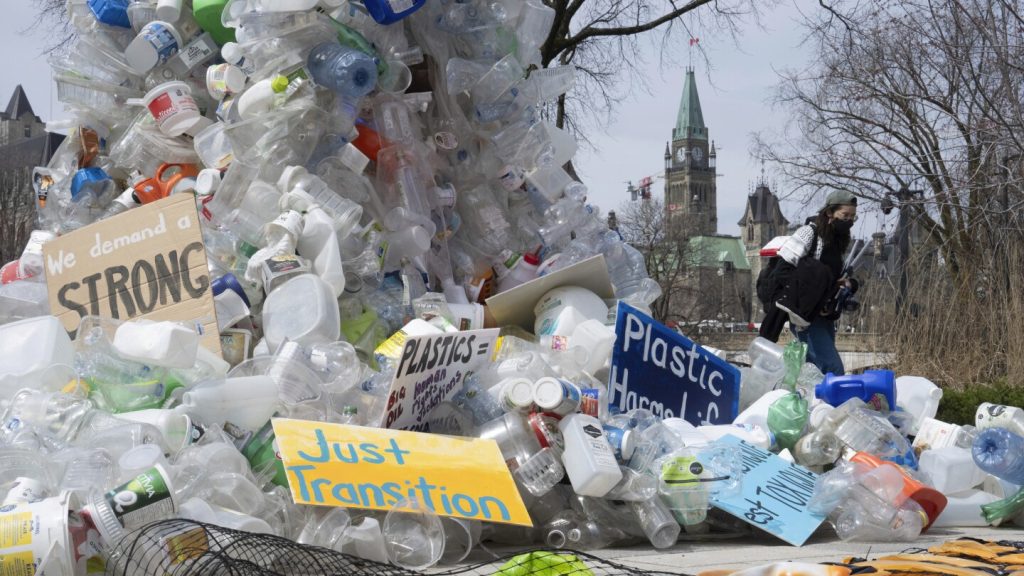The world’s nations have made significant progress in negotiations for a treaty to end plastic pollution, with a recent meeting in Ottawa showing a monumental change in tone and energy compared to previous sessions. The fourth Intergovernmental Negotiating Committee on Plastic Pollution focused on crafting the first legally binding treaty on plastics pollution, including in oceans. There is a shared goal to create a world where plastic litter is eliminated from ecosystems, and nations are working towards creating a global treaty to achieve this.
One of the key takeaways from the meeting is the shift from sharing ideas to negotiating treaty language, indicating a significant step forward in the process. Limiting global plastic production has emerged as a contentious issue, with debates over how much plastic should be manufactured and the need to address the exponential growth in plastic production. Plastic producers and chemical companies advocate for a focus on recycling and reuse, while environmental groups stress the importance of reducing plastic production to effectively combat plastic pollution.
Negotiators have agreed to continue working on the treaty in the coming months, leading up to the final meeting in South Korea this fall where the treaty is expected to be finalized. Expert working groups will gather information and expertise to inform the negotiations, focusing on topics such as financing the implementation of the treaty, assessing chemicals in plastic products, and product design. While some environmental groups are frustrated that production cuts won’t be a focus, progress is being made towards creating a comprehensive treaty.
Witnesses to plastic pollution, such as waste pickers and activists from various countries, shared their experiences and highlighted the urgent need for a global agreement to address plastic pollution. Waste pickers who collect and recycle plastics face health risks from exposure to hazardous materials, while communities struggle with the consequences of plastic pollution on land and water. Indigenous communities, disproportionately impacted by pollution, stressed the importance of having their voices heard in the treaty negotiations.
Negotiators aim to finalize the treaty in South Korea this fall, with plans for adoption at a diplomatic conference next year. The short timeline for negotiations reflects the urgency of the issue, with the hope that an ambitious treaty to end plastic pollution will be adopted as scheduled. There is growing momentum and support from various stakeholders, including businesses, environmental advocates, waste pickers, and communities affected by plastic pollution, signaling a collective effort to achieve a cleaner and healthier environment for all.


